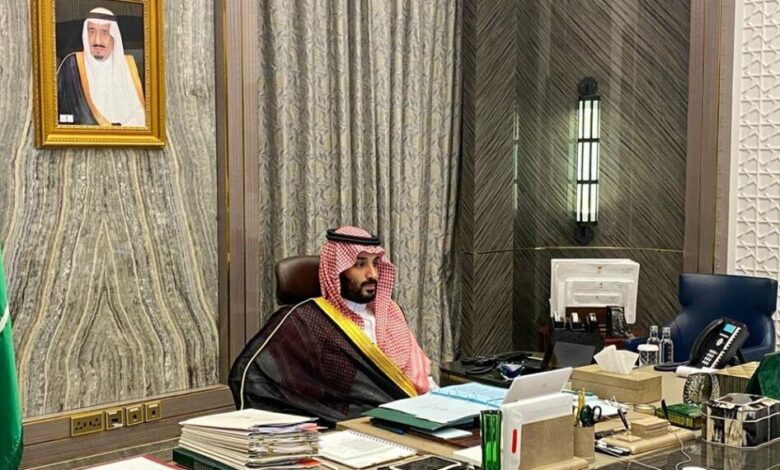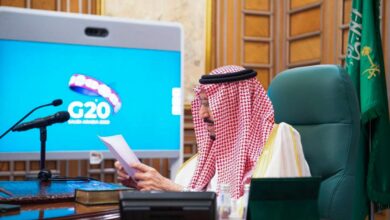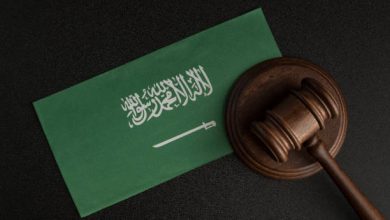Saudi decreases oil production to please Biden, and loses $3 billion

Crown Prince Mohammed bin Salman is rushing to complete a series of internal and regional steps to please the new US President Joe Biden.
When the kingdom cut its oil production, in a move it described as a “goodwill gesture,” the kingdom’s de facto ruler occupied the spotlight with his willingness to solve various crises.
Crown Prince Mohammed bin Salman was responsible for the dispute with Qatar for more than three years.
But they are now just less than two weeks away from a new US leader taking office, and President Biden has promised to treat the kingdom as a “pariah”.
Policy shift
Alongside Iran’s threats and the weakening economy, the crown prince’s considerations have shifted, as reconciliation looks better than conflict.
On Tuesday, January 5, 2021, in coincidence with the deployment of cameras in Al-Ula, Prince Mohammed bin Salman embraced Qatar’s Emir, Tamim bin Hamad, to end the division and prove himself a peacemaker.
A few hours later, the kingdom announced that it would cut its oil production by one million barrels per day to support prices favouring other producing countries.
A decision that the Minister of Energy said was directed directly by the Crown Prince, which led to an increase in American energy companies’ shares.
“Two birds with one stone”
With these steps, Prince Mohammed has emphasized his public presence in a conciliatory tone, at least for the time being.
Since the 35-year-old’s ascension to power in 2015, the world’s largest crude oil exporter has entered a series of high-risk projects.
A war in Yemen, partially severing relations with Canada, waging a bitter oil price war with Russia, and standing on the brink of a trade war with Turkey.
“He is trying to hit two birds of influence with one stone. He seeks to achieve the largest possible gains from Donald Trump’s administration, that is friendly to Saudi Arabia.”
And it happened based on Advisor Jared Kushner’s desire – who attended the summit – to portray himself as a peacemaker.
“In addition to placing himself in the position of a leader that Biden will not be able to ignore or hostile to, especially with his constructive appearance.”
“It’s an effort by him to take on a leadership role,” said Karen Young, a resident scholar at the American Enterprise Institute in Washington, DC.
Young added that it is an attempt to achieve a diplomatic advantage with the incoming Biden administration, and stems from the realization that the past four years may have allowed for too many foreign policy adventures.
The cost of conflict
Bin Salman plans to diversify the economy and reduce dependence on oil faces major failures.
The Coronavirus pandemic has made local challenges even more urgent.
At Tuesday’s summit, King Salman was absent, and his son Mohammed was the star.
The summit preparations reflected the prince’s ambition to highlight his plan to turn Al-Ula into a global tourism destination.
After the meetings, the Emir of Qatar, Sheikh Tamim bin Hamad, was escorted on tour inside a white Lexus car driven by Prince Mohammed himself.
READ: Trolls attack Saudi scholar for calling to free prisoners of conscience
No one would have imagined this scene a few years ago when the prince’s closest advisers criticized Qatar.
Saudi Arabia and its allies accused the wealthy Gulf state of “interfering in their internal affairs and supporting terrorism; and the exploitation of its influential media channels as propaganda weapons against the neighbours, charges that Doha denied and faced.
Regional influence
Hisham Al-Ghannam, a political scientist and senior research fellow at the Gulf Research Center says regional dynamics have been central to the drive to mend relationships.
Biden said he would look forward to re-joining the Iran nuclear deal that Trump withdrew.
It is an approach that Saudi Arabia awaits with fear, and provides it with an additional incentive to repair relations with its Arab neighbours.
The production cut was another sign of the kingdom’s regional and global influence.
Major losses
Energy Minister Prince Abdulaziz bin Salman said the move would help other countries suffering from low oil prices, such as Iraq.
The move highlighted the change in the kingdom’s oil policy during King Salman and Prince Muhammad’s reigns.
After decades of pride in putting oil in a more important place than politics, the royal court has become more intrusive, and energy conspiracies have become more politicized.
For this reason, Prince Abdulaziz described the reduction in production as a “political sovereign” step rather than a “technical” step.
At current prices, the kingdom will incur $3 billion a month in lost oil revenues.





